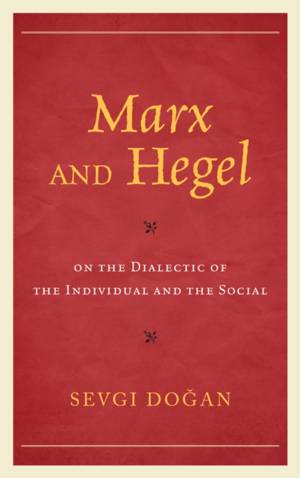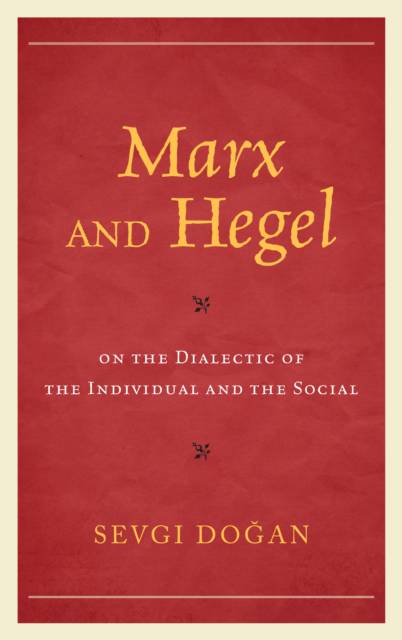
Door een staking bij bpost kan je online bestelling op dit moment iets langer onderweg zijn dan voorzien. Dringend iets nodig? Onze winkels ontvangen jou met open armen!
- Afhalen na 1 uur in een winkel met voorraad
- Gratis thuislevering in België vanaf € 30
- Ruim aanbod met 7 miljoen producten
Door een staking bij bpost kan je online bestelling op dit moment iets langer onderweg zijn dan voorzien. Dringend iets nodig? Onze winkels ontvangen jou met open armen!
- Afhalen na 1 uur in een winkel met voorraad
- Gratis thuislevering in België vanaf € 30
- Ruim aanbod met 7 miljoen producten
Zoeken
Omschrijving
Marx and Hegel on the Dialectic of the Individual and the Social is a detailed investigation of the major works of Hegel and the young Marx with exploring how the concept of the individual is positioned within their ontologies and how this positioning is reflected in their related political views. Instead of contrasting a Marxist understanding of the individual with that of a liberal thinker, Sevgi Dogan chooses to take Hegel's theory of the state as representative of the modern state, which Marx criticizes. The decision to be in opposition to Hegel rather than some other liberal thinkers is important for two reasons. First, since Marx has developed many of his early ideas in critical interaction with Hegel, this comparative approach enables the book to present a more thorough and well-grounded exposition of Marx's arguments. Second, since Hegel himself has also criticized the concepts of liberal ideology in many respects, differentiating Marx's arguments from those of Hegel's enables the book to underline how and why Hegel's critique of liberal ideology falls short of actually empowering individuals in the way that Marx's account does.
Specificaties
Betrokkenen
- Auteur(s):
- Uitgeverij:
Inhoud
- Aantal bladzijden:
- 284
- Taal:
- Engels
- Reeks:
Eigenschappen
- Productcode (EAN):
- 9781498571876
- Verschijningsdatum:
- 15/08/2018
- Uitvoering:
- Hardcover
- Formaat:
- Genaaid
- Afmetingen:
- 155 mm x 231 mm
- Gewicht:
- 498 g

Alleen bij Standaard Boekhandel
+ 437 punten op je klantenkaart van Standaard Boekhandel
Beoordelingen
We publiceren alleen reviews die voldoen aan de voorwaarden voor reviews. Bekijk onze voorwaarden voor reviews.











